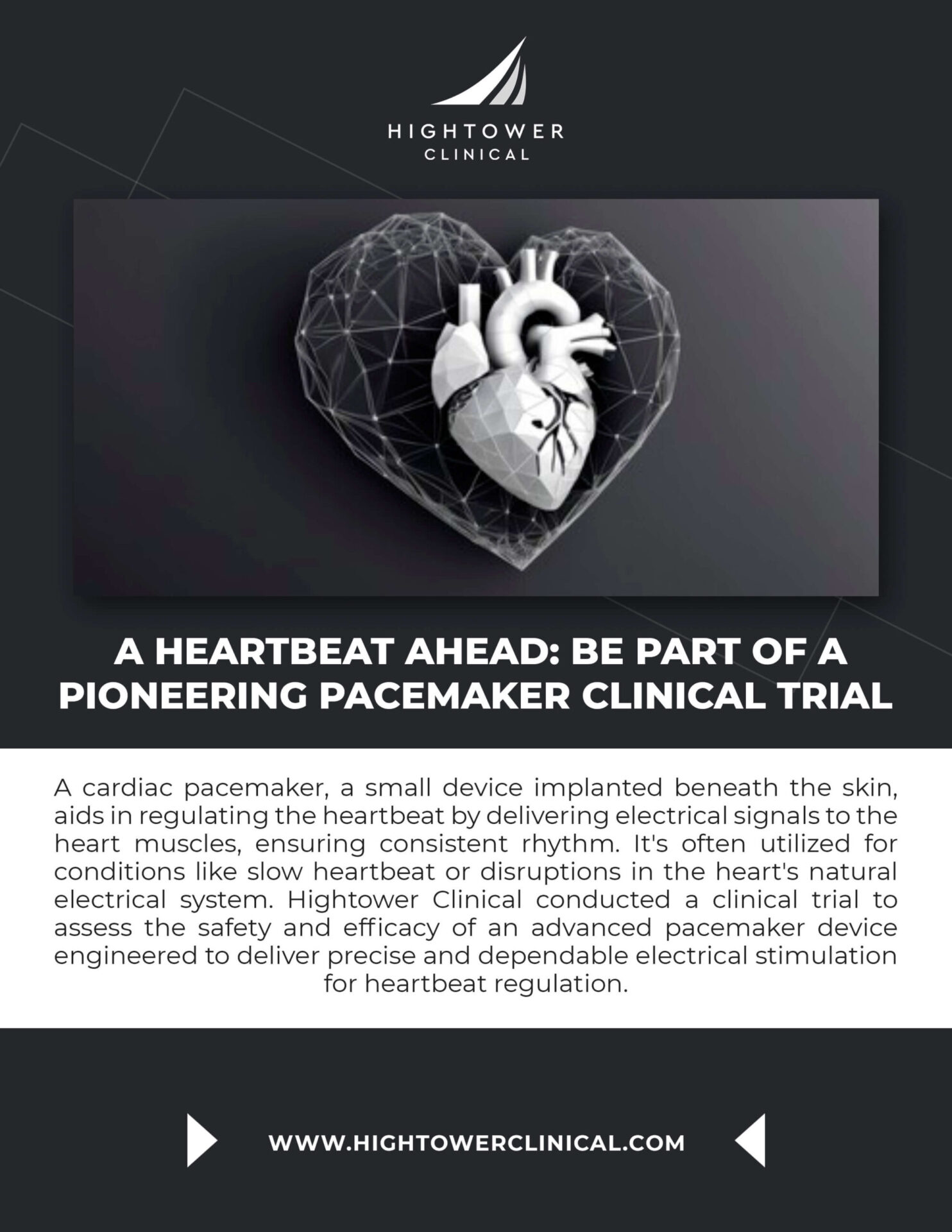People with a slow heart rate (bradycardia) that causes symptoms like fatigue, dizziness, or fainting may benefit from a pacemaker. It helps regulate your heart rhythm by sending electrical signals to stimulate contractions.
Cardiac Pacemaker
Explore Hightower’s contributions to advancements in cardiac pacemaker technologies and help everyone.
Reseach Study of Cardiac Pacemaker Device
A cardiac pacemaker is a small device implanted under the skin to help regulate the heartbeat. It uses electrical signals to stimulate the heart muscles, ensuring a steady and regular heartbeat. Pacemakers are commonly used to treat conditions like slow heartbeat or when the heart’s natural electrical system is disrupted.
Hightower conducted a clinical trial to evaluate the clinical safety and effectiveness of a new pacemaker device. This innovative device was designed to provide precise and reliable electrical stimulation to regulate the heartbeat.
Current Status
Not Recruiting
Study Count
1
Frequently Asked Questions
What can I expect during a pacemaker implantation?
Pacemaker implantation is usually a minimally invasive procedure. You’ll likely be under local anesthesia while a small device is placed under your skin near your collarbone. Thin wires are then placed in your heart to deliver electrical pulses.
How long does a pacemaker last?
Modern pacemakers typically last 7-10 years before needing replacement due to battery depletion. Your doctor will monitor your pacemaker regularly to ensure proper function.
Are there clinical trials for new pacemaker technologies?
Yes, there may be ongoing clinical trials testing new pacemaker features, functionalities, or battery life. These studies help researchers evaluate the safety and effectiveness of these advancements.
What happens if I decide to withdraw from a clinical trial?
You have the right to withdraw from a clinical trial at any time and for any reason, without penalty. Simply inform the research team of your decision




